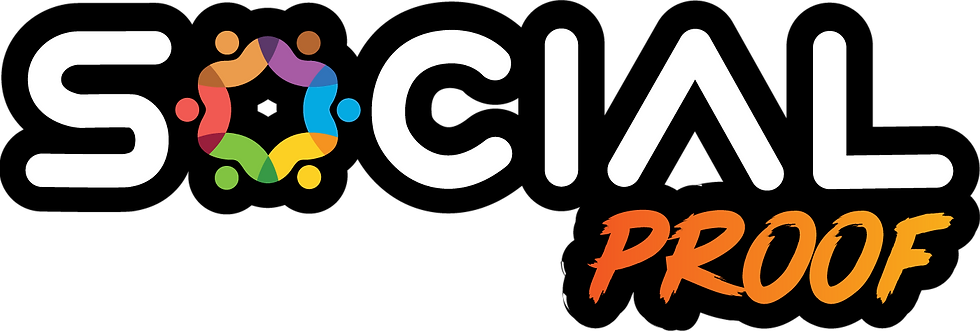Black Collectivism & Business: Can We Get It Right?
- Lynnette René Doby

- Nov 27, 2022
- 5 min read
David Shands Sits w/ATL's Own, Circle of CEOs
Probably by now you've heard about the dynamic collective of black male CEOs known collectively as the Circle of CEOs.
If you aren't familiar with this group, allow us to introduce you to trucking mogul Alix "Good Energy" Burton, CEO of Recession Proof and entrepreneur Marcus "Him 500" Barney, digital strategy mastermind, Nehemiah "Neo" Davis, celebrity fitness trainer and gym owner, Jason Lobdell, and sales and conversion guru Justin "Mr. Run The PLAY™️" Owens.
Many people find this group to be an anomaly.
Five strong and successful black men who are not only friends but business partners who honor, respect and truly care for each other.
Can we talk about how these men are dispelling stereotypes and tearing down the idea that there can't be unity in the black community in business?
Well, that's what this post aims to do.
The subject matter of black unity in business is so good that I had to combine it with a bit of op-ed as well. I hope that's cool. I will go into detail about the podcast episode, but will engage in theory on why we can't get right.
Oh, and to be clear, these opinions are mine and responses to what I think about statements made in this episode. As always, I invite you to leave your thoughts in the comments.
If you want to hop straight into the episode, I am not going to hold you. Click below. While you're there, hit subscribe on the YouTube channel.
If you want to stay on the blog and keep scrolling & reading, do your thing. This is going to be a good one.

David got the opportunity to chat with the men at their event and discovered how they united in business and brotherhood.
The conversation, at one point, explained how divisiveness affects the black community and entrepreneurship.
Never one to stray away for controversial topics and questions, David dove right in by asking the group of men why they think some people view Atlanta as the home of the scammer.
The question hung in the air after David asked it, as if no one wanted any parts of answering it.
Alix jumpstarted the conversation by saying the term scammer is a term that is used a lot. Sometimes it's justifiable and other time not so much. He cautions entrepreneurs to not over promise their offer but to provide actionable results to their clients.
I liked his take on the subject. It was solid.
My inner researcher began to tingle. I am all about statistic to back up a statement, so I went to google and began digging.
Of course, it's debatable what defines black excellence, but I am not going to make this post a college term paper, so we'll simply define it as successful high-earning blacks.
By doing my research, I found similar yet conflicting information. Per capita, Washington DC blacks have the most wealth, but in other sources, Atlanta is listed as having the most self-made successful blacks. Or it tied both major cities for the highest amount of successful blacks high-earning.
Marcus is a community builder, like David and all the men on the stage, and it seems his high-standard influences each portion of his mindset in the pursuit of community.
He continues by stating we are own worst critics. He may have stepped on some toes with that one, but the truth can only be one thing—the truth.
Citing the historical figure and legendary black activist, Malcolm X, Marcus continues to share that Malcolm's entrepreneurial success for the black community was overshadowed by his other aspects of his life by condemnation from his community.
Then he hits the audience further with the truth when he references the Willie Lynch letter, which was an incendiary document that was the playbook for the mental enslavement of victims of chattel slavery.
Again, without turning this into a college-level thesis paper, colonizers like Willie Lynch taught others like him to instill in their slaves anti-trust amongst each other and a heightened level of criticism that presently we reserve for each other.
He then lands his thoughts by saying that this negative divisiveness is still very prevalent today, because the only way we get torn down is from each other.
With more knowledge and awareness of this, he feels we can combat this and work together effectively to destroy the divisiveness and build together with financial independence via ownership.
Lastly, solution-based initiatives that promote growth can get us to the next level.
The Circle of CEOs and a unified front provide proof that we CAN work together to generate revenue and wealth.
Consider This: Do you think pairing knowledge of business and the desire to see others win will create successful business collaboration within our community? Let me know in the comments.
As the conversation develops, the group shift to how they first convened. What started off as a weekly Zoom call then turned into something far greater.
Would you like to build your own version of the Circle of Ceos? Here are some of their tips.

Alix: Prioritize meetings and solving scheduling challenges.
Each member of the Circle of CEOs has their own thriving business, which comes with a busy schedule. However, they make it a priority to be on the 9:30 am Zoom call every Monday morning.
Lesson: Build with dedicated and disciplined people.

Nehemiah: Identify, before you start collaborating, what does each person bring to the table?
When selecting your new collaborating team or get money team, what do they do differently from you? It doesn't make sense to work together, just because. Create a team that each brings something unique to the table to build with intention.
Consider This: Have everyone on your team do a DISC assessment, because it will not lie.
Also, people are different. When you combine unique personalities and energies in a space, disagreements are bound to occur.
Lesson: Know who you are getting into business with.

Justin: When disagreements or issues arise, don't let them last long. There have been times when they approach each other after a disagreement to check-in ensuring they are all on the same page. Their friendship is the number one aspect of their connection, so maintaining it is the most important.
Consider This: Do you like and respect the people that you work with? Be realistic and make sure the people you build with are people that you like.
Lesson: Squash drama quickly it impedes progress.

Jason: Learn to get rid of your ego and realize it's just not about you and what you want. It's about what's best for the group.
When they first became a group, Jason admits that one of the obstacles they had to get over was getting over their own individual egos. So self-awareness is the key to work with others effectively.
Consider This: Is your ego holding you back? Understand how to work effectively with others for the highest and greatest good of the collective.
Lesson: Humble yourself for the overall health of the collective.
We covered a lot of ground here, but there is more to go. Click the image below to see the rest of the episode.
We'll see you in the next upload!







Comments